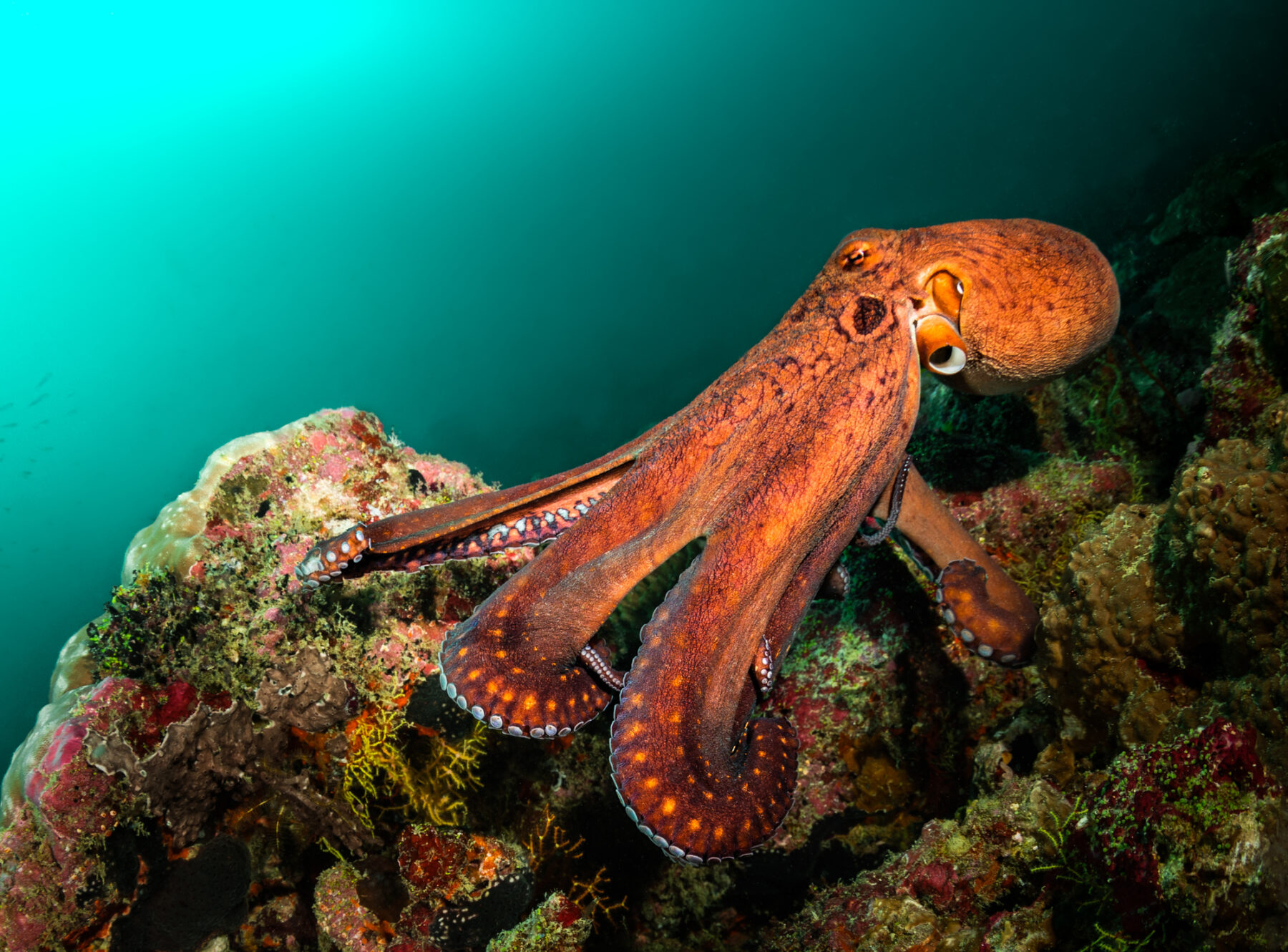International Octopus Day 2024: environmentalists against the octopus farm planned in Canary Islands. Nueva Pescanova plans to build the world’s first octopus farm in Las Palmas de Gran Canaria. Congress of Deputies: Nine environmental and animal protection organizations call for concentration on October 5 against this farm, for the International Octopus Day 2024. There’s a call concentration in Las Canteras (Playa Chica) in Las Palmas de Gran Canariathe same October 5by 11am to 2pm.
Nine environmental and animal protection organizations are calling for an event to mark this event International Octopus Day 2024that is celebrated on October 8 all over the world, and against the construction of the farm that Nueva Pescanova plans to build in Las Palmas de Gran Canariathe first of its kind in the world.
Concentration:
- Day: Saturday October 5, 2024.
- Time: 12 hours.
- Place: For the Congress of Deputies, Madrid.
The business group New Pescanova promotes in Puerto de La Luz, in Las Palmas de Gran Canaria, the first industrial octopus farm in the world. This project has been proposed and rejected in several places.
In the European Union Denmark recently committed assess the welfare implications of octopus farming j Germany moves towards one new regulations making stunning mandatory before slaughtering octopuses. Both FOSlike ASC – two aquaculture certification programs – have denounced this emerging industry and declared that could not certify farmed octopus products due to welfare concerns.
In United Statess you are working on a bill for the banas in Mexico and inside Canada. The state of Washington has banned the farming of farmed octopus before it was even proposed, aware of the environmental impact. It is under review in California, while ban procedures have begun in Hawaii and Connecticut. Oregon has also rejected this project and, through specially developed regulations, banned the technology and methods used for this type of practice.
Compassion in World Agriculture España (CIWF)
“The scientific community has repeatedly warned in recent years the danger of intensive octopus farming not just for him animal welfarebut also for the environment and human health“, warns Dr. Elena Lara, senior advisor on Science and Policy at Compassion in World Agriculture España (CIWF)which assures that “Industrial farming of octopuses that meet animal welfare criteria is impossible“, so it is immediately not recommended to breed these animals.”
Oceans action
For his part, Taïme Smit, out Oceans actionexplains that “as this new form of exploitation becomes a reality every year approximately one million octopuses are said to be overcrowded and exposed to artificial light 24 hours a day In addition, contrary to their natural, solitary and nocturnal behavior, they would be sacrificed by freezing, one of the methods considered the cruelest because it is painful and long-lasting as possible.
OK
Leili Kashani, by OKadds that “more than 1,500,000 people from Spain and around the world have contributed Call on Spain, Britain and the EU to stop the world’s first octopus farm and approve laws banning octopus farming. This farm would set a dangerous precedent that could become a new agricultural industry. industrial octopus farmsand we must stop this before it is too late.”
The organizations take care of that More than thirty MEPs have expressed their opposition to this farm in parliamentary questions to the European Commission and by sending a letter to the government of the Canary Islands.stating that no scientifically validated and accepted methods exist for the ethical slaughter of octopuses and that housing requirements are incompatible with commercial farming. They point that out The industrial farming of octopuses goes directly against the EU’s strategic aquaculture directives and urges the governments of the Spanish and Canary Islands to join the rest of the EU member states.where the project is rejected.
Octopus farms: risks to the environment and human health
The Canary Islands government has demanded a more extensive environmental impact assessment procedure, which is still ongoing. Local authorities have determined that a octopus farm would have “significant negative impacts on the environment”.
The launch of this industry would pose environmental and public health risks:
- Risk to public health: The company does not guarantee that the seawater used on the farm is fit for human consumption, which compromises food safety.
- Emissions and use of natural resources: The project relies heavily on fossil fuels and consumes large amounts of seawater, changing its physical and chemical properties before it is released back into the environment.
- Pollution: Construction and operations threaten to pollute local water, air and nighttime environments.
- Overexploitation of fish stocks: Furthermore, like the octopuses They are carnivores, they require a high protein diet, which usually consists of fishmeal and fish oil. This dependence threatens food security and sustainability by diverting fish from human consumption to the production of these meals. To obtain 1 kg of octopus meat, 3 kg of food (fish meal and oil) is required.making it a completely unsustainable practice.
- Threat to biodiversity: Impacts on nearby marine protected areas and wildlife have not been adequately taken into account, potentially leading to imbalances in marine ecosystems.
- Cultural and recreational areas are ignored: The project does not take into account the potential impact on a nearby protected recreational diving site and is in violation of local cultural heritage regulations.
Breeding octopuses in captivity is not the solution to the overexploitation of wild populationsas the industry tries to make us believe. The octopuses would feed on fish and fishmeal, which would lead to overexploitation of other fish stocks, which would also contribute to the degradation of marine ecosystems.
The real solution is to have one assessment and proper fisheries management of octopus populations so that stocks recoverinstead of producing this species industrially with the consequences that this entails.

